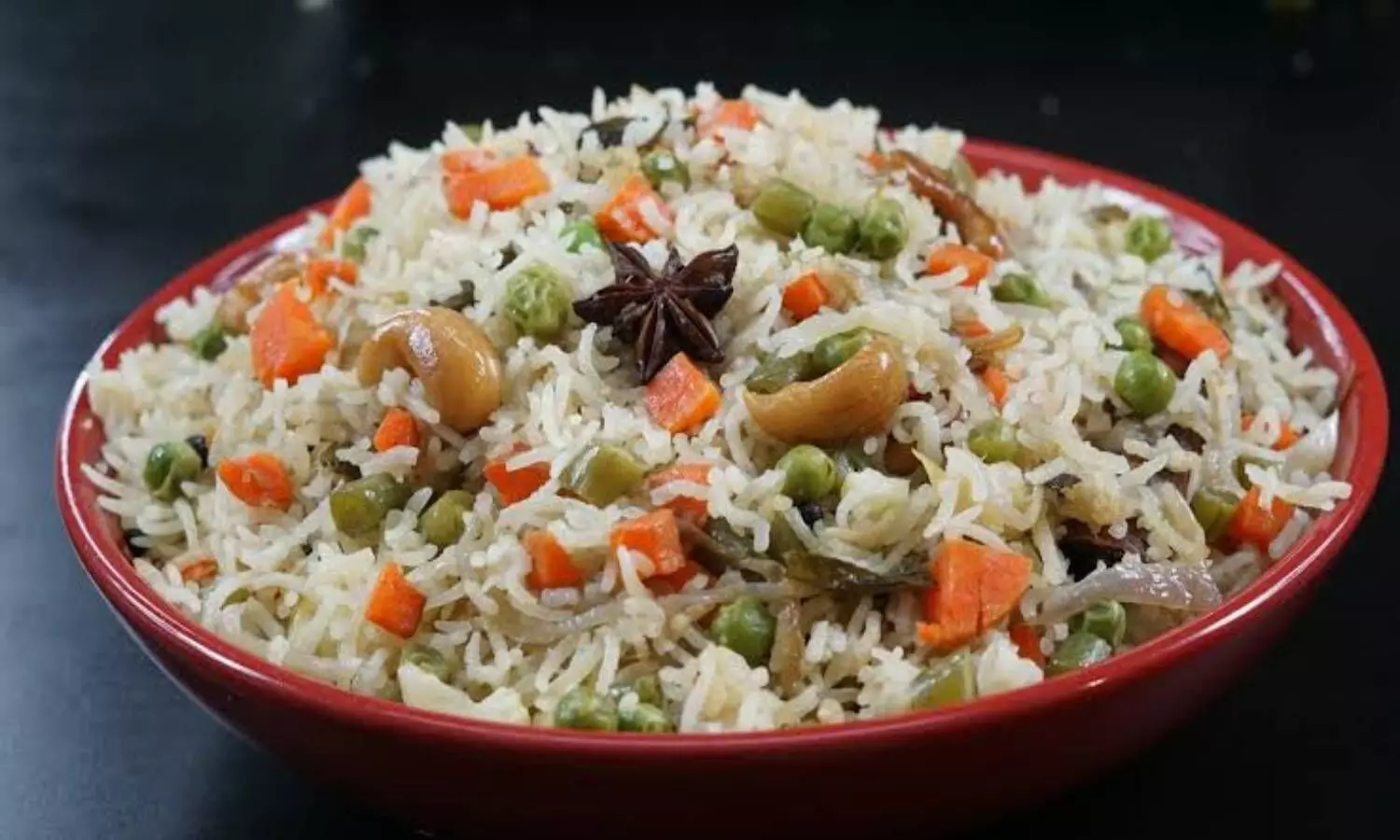Busting weight loss myth: Rice alone doesn't make you fat
There is a misconception associated with eating rice and gaining weight, making it difficult for South Indians to comply with a diet plan that does not include rice.
By Subhasree Ray
Hyderabad: People trying to lose weight will usually tell you to eliminate rice from their diet. Fitness enthusiasts and some experts guide their clients with confidence: "Don't eat rice if you want to lose weight", "Don't eat rice at night", "Eat roti instead." To most South Indians, a meal is incomplete without rice. Countless delicacies are prepared from rice in South India every day, such as idli, dosa, Pongal, uttapam, etc. There is a misconception associated with eating rice and gaining weight, making it difficult for South Indians to comply with a diet plan that does not include rice. It is difficult to give up a daily staple that you have eaten since childhood. The good news is that you don't have to stop eating rice to lose weight. A single food cannot make you fat, neither can rice.
Nonetheless, the prevalence of obesity and diet-related noncommunicable diseases (NCDs) such as heart diseases, type 2 diabetes, and stroke are increasing in India, including the southern states. The incidence of NCDs can be reduced by making people aware of dietary composition, healthy eating habits, nutrition education, and discarding misinformation.
Weight loss studies on rice produced mixed results
Rice and weight loss may be connected, but scientific studies have produced conflicting findings. An extensive body of research supports the link between brown rice and weight loss. Whole grains, such as brown rice, are highly nutritious, known for providing fiber, phytonutrients, vitamins, and minerals. The results of a 12-year observational study included 74,091 US female nurses, who were significantly less likely to become overweight compared with those who consumed the least fiber. There is, however, conflicting evidence linking white rice to weight loss. According to a study, rice-based traditional diets were associated with obesity in Korean adults. On the contrary, a study involving 212 participants found no association between eating white rice and weight gain. In fact, a large data from 2019 involving 130 countries concluded that eating more rice could significantly reduce the prevalence of obesity worldwide. Even a modest increase in rice consumption (of 50g/day/per person) could reduce obesity rates by 1% (from 650 million to 643.5 million adults aged 18 years and older) as estimated by the researchers.
Despite this, the relation between dietary intake and obesity is independent of a single food, and multiple other factors play an important role in the complex mechanism of obesity. While brown rice provides more fiber, minerals, and vitamins than white rice, there is not much nutritional difference between the two. It is true that brown rice is a better choice than white rice, but there are a variety of whole grains that are far more nutritionally dense than brown rice, such as millets, quinoa, barley, and broken wheat. The most important factor is the portion size. If you consume mindlessly, even the healthiest foods available on this planet will not prevent overweight or obesity.
It's the modern diet that's causing the most harm
Many Asian countries, including China, Japan, Korea, India, and Bangladesh, have eaten rice for centuries without reporting a high rate of overweight or obesity until recently. Rice is even eaten 20 times a week or six times every day in some countries. Despite this large consumption, these populations showed no weight gain. Research has found that elderly Chinese adults who were consuming rice and vegetables were less likely to become obese or have a large waist circumference.
Obesity prevalence in these countries grew exponentially after globalization and food habits changed drastically from traditional to westernized, containing more ultra-processed foods, instant foods, junk foods laden with refined sugar, salt, artificial preservatives, flavourings, and colours. To keep up with our busy schedules, fast foods are taking over our kitchens. The new generation menu features rice and fried foods, salted side dishes, and sauces that were never available to the older generation. Logically speaking, rice plays no role in weight loss/gain unless it's consumed in excess or combined with other junk.
Rice as part of a wholesome, balanced diet
An individual's dietary habit is complex. Every day, we consume food that is determined by a decade-old traditional eating habit, local availability, personal preferences, cultural norms, affordability, and personal goals. To maintain good health, lose weight or treat any other health condition, you must follow the golden rule of personalized nutrition. There is no good or bad food. You create a balanced plate by combining a variety of foods. If you don't like any other alternative, you can incorporate rice into a wholesome, balanced diet. However, reducing the amount of rice is a sensible choice if you suffer from type 2 diabetes, prediabetes, or insulin resistance. Whether you eat rice or not, if you are consuming too many calories, not exercising regularly, eating sugary foods or beverages, or not adding enough protein to your daily diet, you will end up overweight or obese.
To sum up
Given the increasing prevalence of obesity and other diet-related NCDs among South Indians, it is strongly recommended that a whole-food-based, low-carb diet is followed daily. As a staple carbohydrate, rice can easily be included along with protein, fat, vitamin, minerals, and fiber but the right amount needs to be determined by a nutritionist.
Subhasree Ray is a doctoral scholar (Ketogenic diet), a certified diabetes educator, and a clinical and public health nutritionist. She writes explicitly on dietetics, nutrition policy, food security, and sustainable eating. She tweets @DrSubhasree.